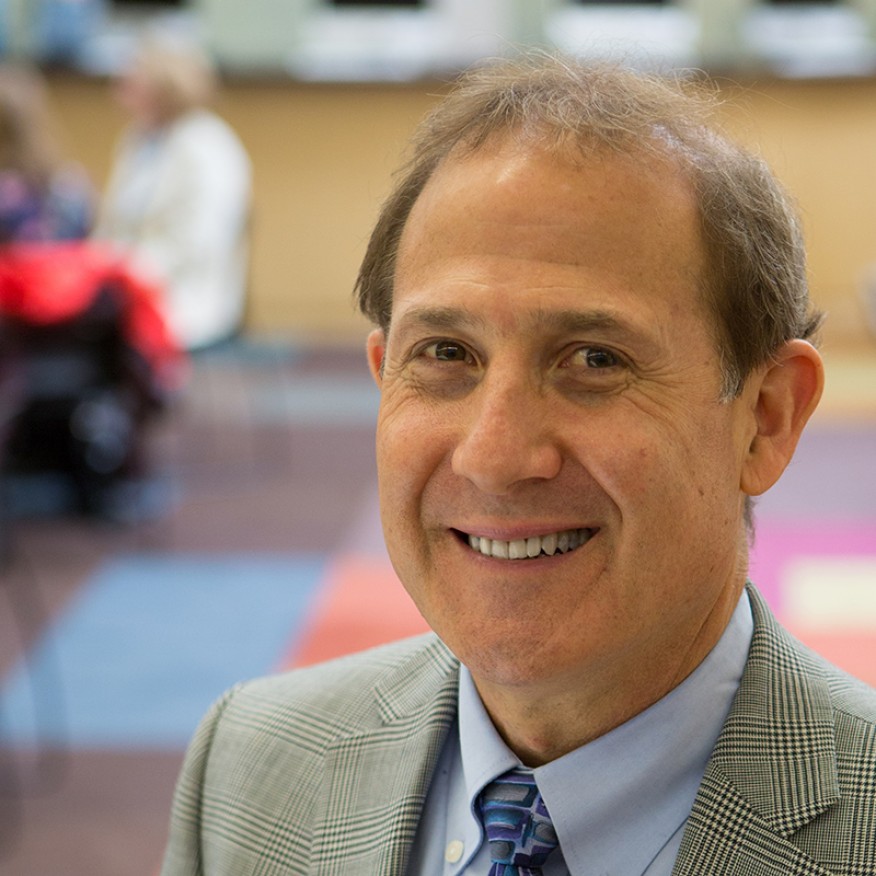Associate Professor Brad Zebrack, PhD ’99, is making a significant difference in the treatment of patients with cancer, and is receiving national recognition for the positive outcomes of his diligent work.
Not only is he the recipient of the 2014 American Psychosocial Oncology Society’s (APOS) Outstanding Education and Training Award, but he also was awarded Best Research Poster at the APOS annual meeting last year for his poster “Trajectories of Distress and Psychosocial Support Service Use Among Adolescent and Young Adult Cancer Patients.”
Zebrack’s research found that substantial proportions of adolescent and young adult cancer patients...benefit when mental health professionals, specifically oncology social workers, are involved in their care.
Zebrack’s research found that substantial proportions of adolescent and young adult (AYA) cancer patients experience clinically significant levels of psychological distress, and that these young patients benefit when mental health professionals, specifically oncology social workers, are involved in their care.
Zebrack’s research is in response to the Institute of Medicine’s (IOM) 2007 report on the inadequate psychosocial care of patients with cancer in the US. As a non-governmental organization, the IOM’s primary purpose is to provide national advice on issues relating to biomedical science, medicine and health and to serve as adviser to the nation to improve health.
The IOM report identified six specific areas in which cancer care is inadequate and where healthcare providers would benefit from advanced education and training. With colleagues from City of Hope National Medical Center, Zebrack developed the Excellent in Cancer Education and Leadership (ExCEL) program, which focuses specifically on training oncology social workers to be change agents within the cancer treating institutions or agencies where they work. The curriculum is funded by a National Cancer Institute grant entitled “Cancer Care for the Whole Patient: An Oncology Social Work response.”
“Oncology social workers play a significant role in promoting positive outcomes for patients with cancer and their families,” Zebrack said. “Their participation in the ExCEL program is intended to promote their ability to address and change conditions within their institutions and thus enhance the delivery of high quality cancer care.”
Zebrack has delivered the ExCEL curriculum for the past four years to nearly 400 oncology social workers throughout the United States.
Prospective attendees interested in participating in the ExCEL program complete a competitive application process, which includes a personal statement detailing their willingness, interest and commitment to implementing systems change within their institutional environment. The curriculum is offered during preconference institutes that occur prior to the annual meetings for the Association of Oncology Social Work and the Association of Pediatric Oncology Social Workers.
“The national leaders who make up the ExCEL faculty help the attendees develop goals and strategies for change,” Zebrack said. “We want every attendee to be successful with the implementation of a new approach to the delivery of psychosocial care.”
The curriculum provides ongoing follow-up and guidance for ExCEL participants through blogs, newsletters, websites and one-on-one consultation with ExCEL faculty.
“I am so appreciative of having had the opportunity to develop and deliver the ExCEL program alongside outstanding oncology social work leaders, and it’s very gratifying to be acknowledged for exemplary service to psychosocial oncology,” Zebrack said. “The education and training of new investigators and clinicians is incredibly important to treating the whole patient.”
